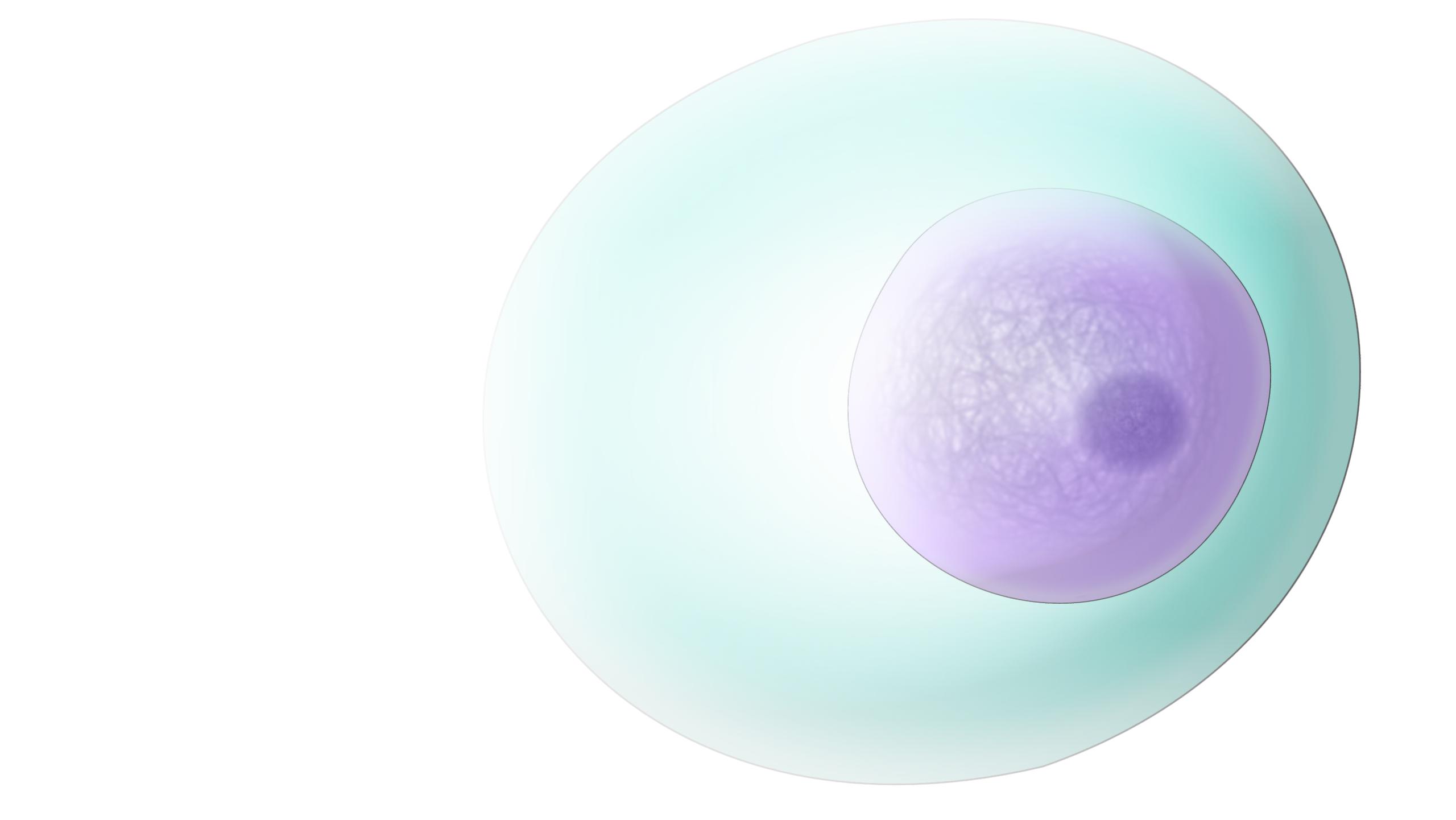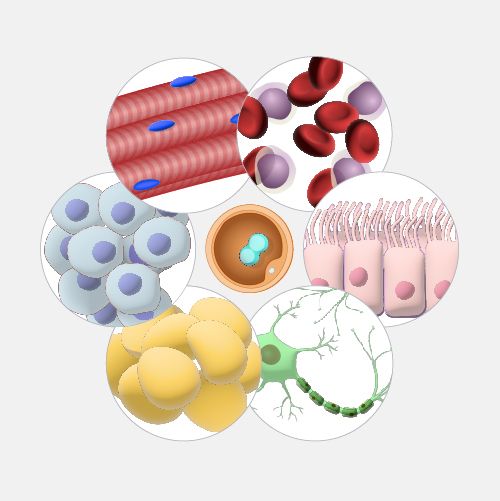
Fibroblast
Definition
A fibroblast is a type of cell that contributes to the formation of connective tissue, a fibrous cellular material that supports and connects other tissues or organs in the body. Fibroblasts secrete collagen proteins that help maintain the structural framework of tissues. They also play an important role in healing wounds. Obtained from a person through a simple skin biopsy, fibroblasts can be grown in the laboratory for use in genetic and other scientific studies of that individual.
Narration
Fibroblast. We use fibroblasts greatly in our laboratory. The fibroblast is a specific type of connective tissue cell that's in our skin and in our tendons. And in our genetics research, it's particularly important because it's a type of cell that we can easily collect from people to grow in the laboratory. We only need a snap punch in the skin, about the size of a pen tip. The cells can be grown in an incubator and then later frozen and revived when we need them to study DNA and proteins without having to bring the patient back in for new samples. The cells can also be reprogrammed to make other specific cells, like neurons or heart cells, for further studies to learn about disease, or to test new therapies.





